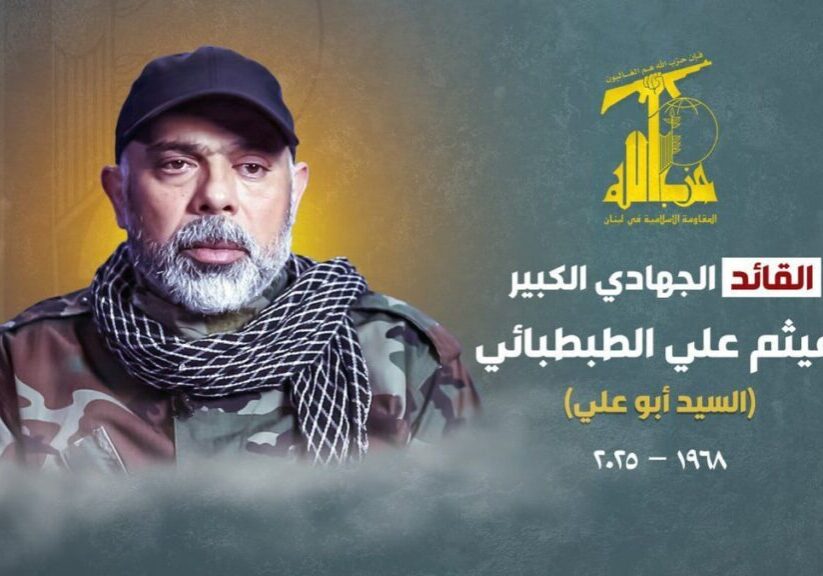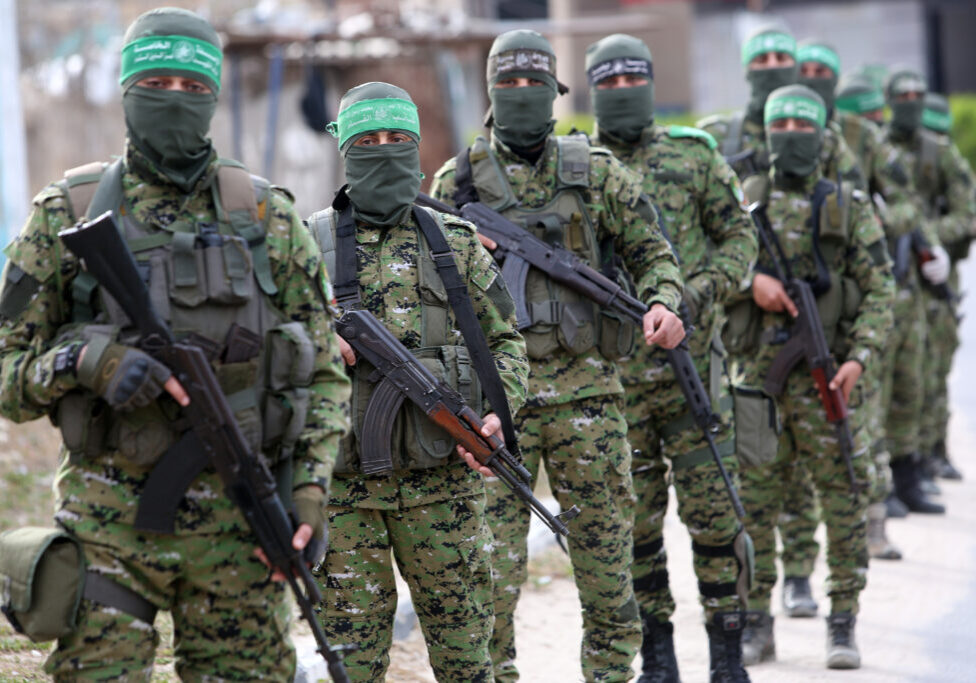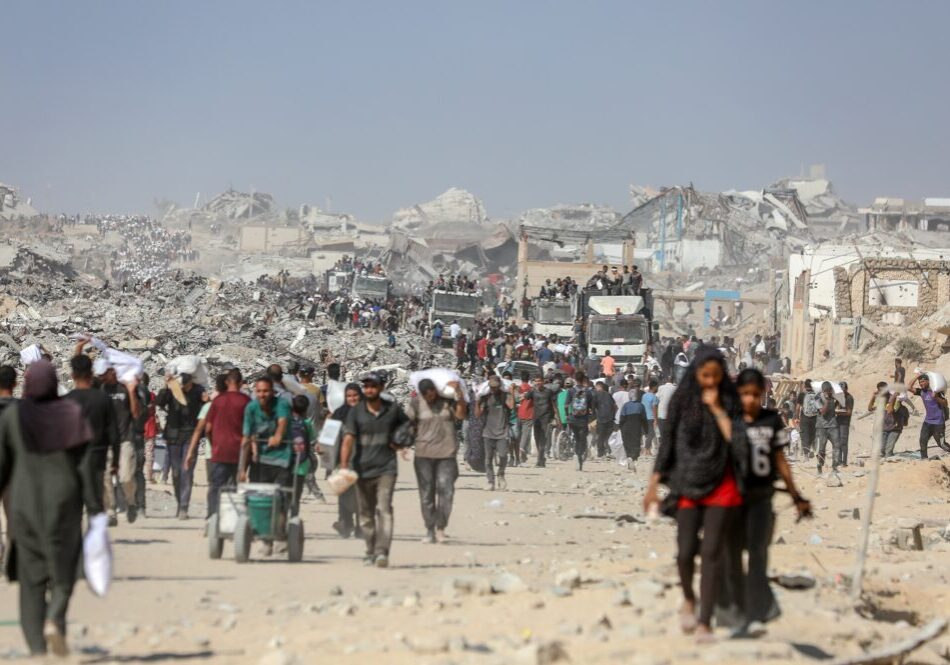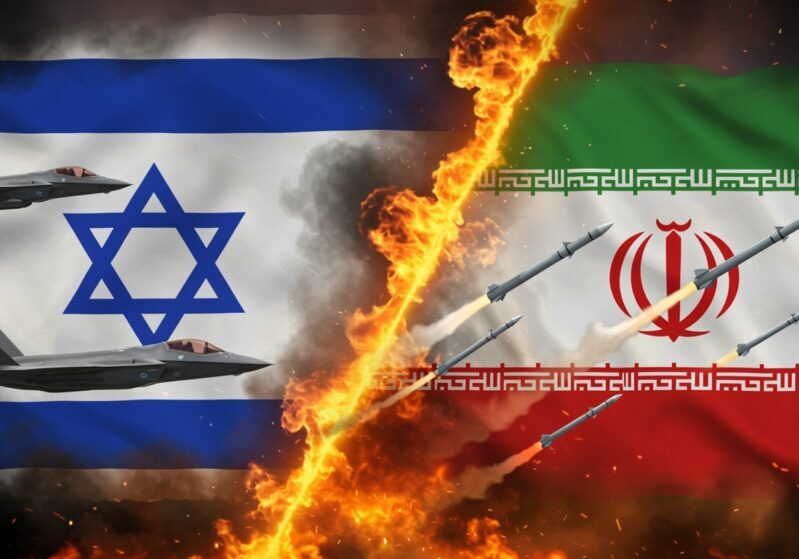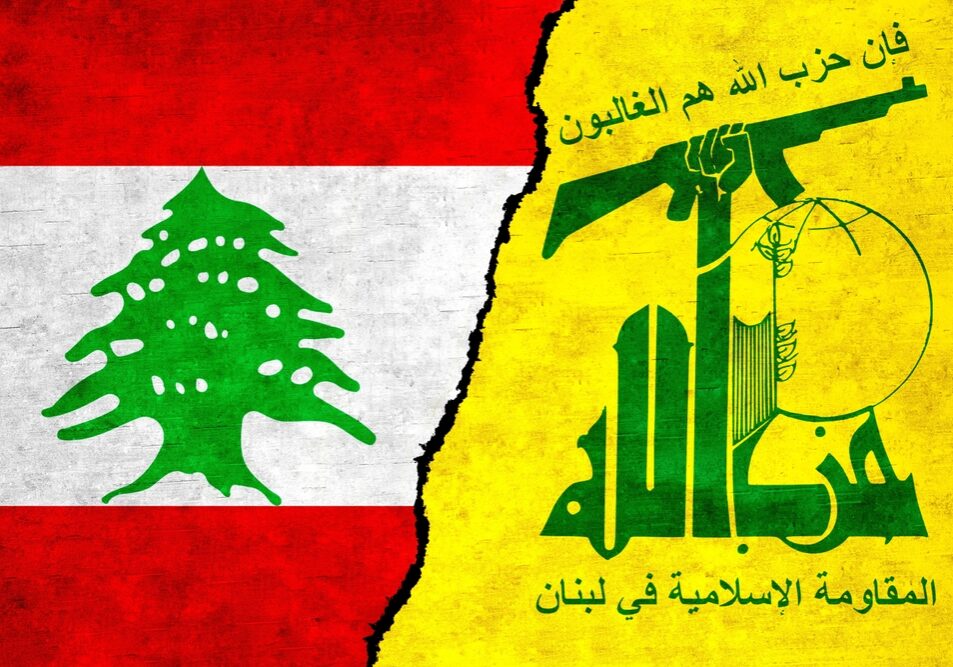Australia/Israel Review
Essay: Dangerous Lies
Mar 29, 2019 | Tony Badran
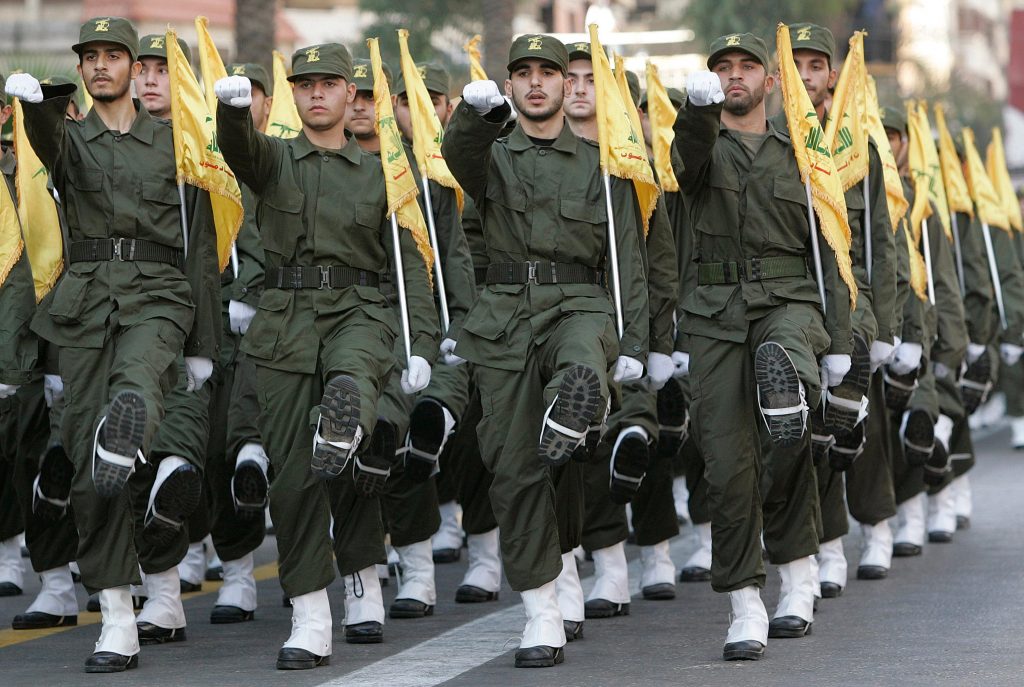
Western views of Hezbollah: A history
It took more than 10 years, but the United Kingdom has finally designated the entirety of Hezbollah as a terrorist group. The UK had already designated Hezbollah’s so-called military wing in 2008, and now, Home Secretary Sajid Javid said, Britain is “no longer able to distinguish between their already banned military wing and the political party.”
Of course, the distinction always was fictional.
This was not a matter of opinion. It was the explicit position of the group itself. Invariably, Hezbollah time and again made clear it had a single leadership that handled all aspects of the group’s activities, as Hezbollah’s Deputy Secretary-General Naim Qassem plainly stated in a much-quoted 2009 interview with the Los Angeles Times, to give but one example.
The issue, therefore, is not about evidence. If anything, it’s about the deliberate avoidance of evidence; it’s not as though the British Government did not have enough information about Hezbollah before it finally resolved to designate it. Nor, for that matter, did the French, who immediately declined to follow suit with the British decision. Nor did the Germans. So why do people choose to deny reality and create such fictitious dichotomies as the tale of Hezbollah having different and disparate wings, one violent and the other benign?
For years, the literature on Hezbollah put forward precisely such a false dichotomy about the organisation. These were not simply academic exercises – at specific junctures, experts and journalists peddled bogus categories and distinctions, arguing that Hezbollah was evolving from a mere terror group to something more nuanced. Unsurprisingly, these ideas purposefully obscured the group’s history and its nature, which isn’t surprising given that some of the experts on Hezbollah, like academic Augustus Richard Norton or journalist Hala Jaber, were sympathetic to the group, or, like academic Amal Saad-Ghorayeb, were outright supporters, who share its animosity toward Israel, and today are having a meltdown over the UK designation.
Under the guise of dispassionate scholars, these professional Lebanon-watchers invested in the image of the group they were advancing, all the more so as most were writing at the moment when America turned its attention to the war on terrorism. Thus, the expert literature on Hezbollah of the period took upon itself a mission – to distinguish the Shi’ite organisation from the Sunni terrorist groups, and to remove it from America’s crosshairs. As such, with few exceptions, minimising or defining away Hezbollah’s terrorism was effectively the norm in the academic and policy literature at the time.
That’s where the sham theories emerged. Hezbollah had “evolved” from its earlier days of transnational terrorist operations, the experts argued, going as far as to cast doubt on whether the group’s military commander, and the most recognisable name in association with its terrorist activity – Imad Mughniyeh – was really part of the organisation at all. Others, likewise seeking to distance Mughniyeh from Hezbollah, laid the group’s terrorism exclusively at his feet while portraying him as a rogue agent or lone wolf of sorts, who answered to the Iranians, separate from Hezbollah, which was now supposedly “Lebanonised”.
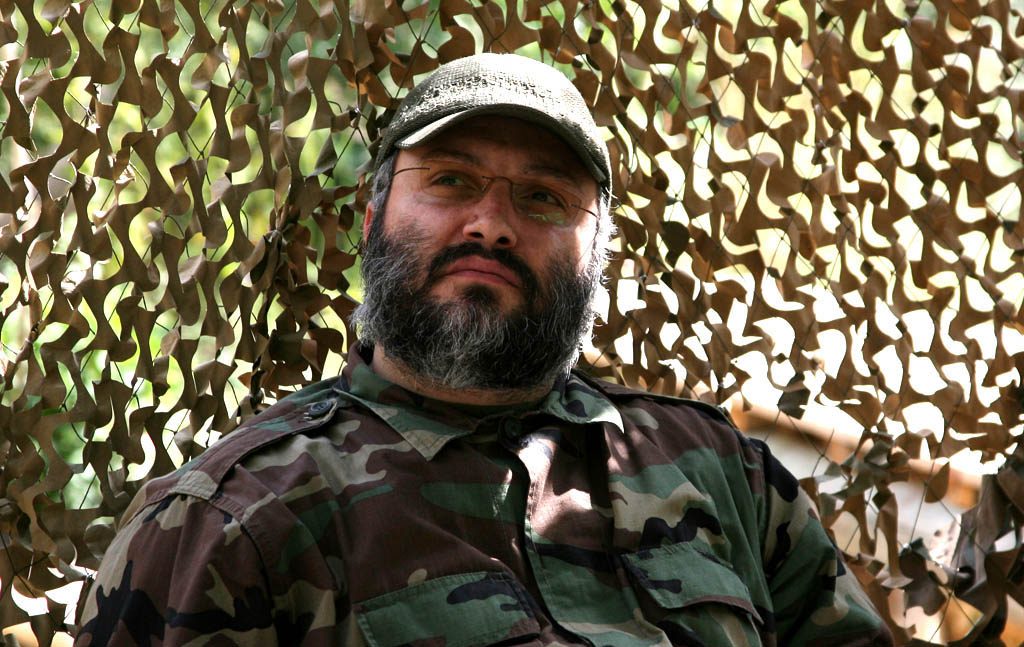
Imad Mughniyeh: Falsely represented as independent of Hezbollah
Consider the journalism professor Mohamad Bazzi, who in 2008 was billed as “working on a book about Hezbollah.” In an interview following Mughniyeh’s assassination, Bazzi authoritatively declared that Mughniyeh “hasn’t really been active since the 1980s.” In fact, he proceeded, “It’s debatable whether he still had a leading position in Hezbollah up to this day.” He was merely an “an old, symbolic Hezbollah cause.”
Or take this pronouncement by another journalist and author of a book on Hezbollah, Nicholas Blanford. “Mughniyeh is often described as Hizballah’s security chief,” Blanford wrote in 2003. “But no firm evidence has been produced that he takes his orders from Hizbollah or has any established organisational link with the group.”
This assessment can be traced back to Hala Jaber’s 1997 book – a few years after Mughniyeh directed the attacks against the Israeli Embassy and the Jewish community centre in Buenos Aires: “One must regard Mughniyeh as someone who is on the margins,” Jaber wrote. “In fact, Mughniyeh does not report to Hezbollah.”
Similarly, the literature commonly dismissed any suggestion that Hezbollah was an organic extension of the Iranian regime, and a key instrument of its power projection. A 2005 academic article described this position as an “anachronistic approach.”
These ludicrous assertions and artificial distinctions were dressed up in the usual academic jargon about how labelling the group as terrorist is a “rhetorical bludgeon”, which hampers “the production of knowledge”, as it caricatures Hezbollah and conceals its other social and political work.
This line was also a moralising polemic. Since Hezbollah was a political party with a large constituency that votes for it as its representative in the Lebanese system, does designating it as a terrorist group mean that these supporters were also terrorists?
This evocation of favourite chestnuts like nuance and morality was perfectly tailored for Western, especially European, policymakers, who congratulated themselves for having a deep and unique insight into the Middle East.
For policy practitioners in the West, seeing things as 50 shades of grey is the apex of worldly sophistication, the most relished attribute. Take French President Emmanuel Macron’s choice of words when commenting on the recent British decision: “France and no other power has the right to decide what Lebanese political parties are good and which are not. This is up to the Lebanese people.”
Lofty as Macron’s words are, they don’t hold a candle to the nuanced sophistication of former Obama administration officials. Consider the views of John Brennan, who went on to become director of the CIA under US President Barack Obama.
Back when he was Assistant to the President for Homeland Security and Counterterrorism in 2010, Brennan’s comments about the group made news. Hezbollah was “a very interesting organisation,” he said. And it had evolved from being “purely a terrorist organisation.” Sure, there were “elements” within Hezbollah that were of concern. But what the US needed to do, Brennan explained, was to find ways “to diminish their influence within the organisation and to try to build up the more moderate elements.”
It’s likely Brennan believed this nonsense. More important, however, is that Brennan’s intellectual vanity and moralising were a cover for set policy choices, namely President Obama’s entente and realignment with Iran.
In 2008, Brennan had made the same pitch about Hezbollah being a layered and complex organisation, but this time Brennan was bringing up the Lebanese terrorist organisation to argue for another infamous and equally fictitious dichotomy: strengthening moderates against “extremists” in Iran.
This strategy, which was the Obama administration’s stated policy, would require, Brennan wrote, “strategic patience” and sensitivity to the complex political realities inside Iran, as well as the complexity of Teheran’s regional strategy, an early signal of how Obama would treat Iran’s regional project. “Washington,” the future director of the CIA noted, “should not expect Tehran to ever sever its ties to Lebanese Hezbollah.” But that hardly was a problem, Brennan continued, because, if anything, Iran can help deepen Hezbollah’s involvement in Lebanese politics. “It would not be foolhardy… for the United States to tolerate, and even to encourage, greater assimilation of Hezbollah into Lebanon’s political system,” Brennan stated. Increasing “Hezbollah’s stake” in Lebanon’s political process is the “best hope” for “reducing the influence of violent extremists within the organisation – as well as the influence of extremist Iranian officials.”
And it was in this context that he repeated the claptrap noted earlier about Hezbollah’s Lebanonisation and “evolution” – “a far cry from Hezbollah’s genesis as solely a terrorist organisation.”
Of course, Brennan continued, as America pursued this nuanced and sophisticated policy, it was likely to face one thorny problem: Israeli intransigence. The Obama administration, which would soon embark on its pro-Iran policy, “will need to convince Israeli officials that they must abandon their aim of eliminating Hezbollah as a political force,” Brennan continued. The Obama administration was to “work to help advance rather than thwart Iranian interests,” Brennan explained. By definition, then, the pro-Iran policy, as we saw for eight years, meant undermining US allies.
Washington being what it is, Brennan’s views signalled to aspiring bureaucrats which way the wind was blowing. And so, Steven Simon, a former US State Department and Clinton White House official who would soon join the Obama National Security Council, co-authored two essays in 2010 expanding on Brennan’s pitch.
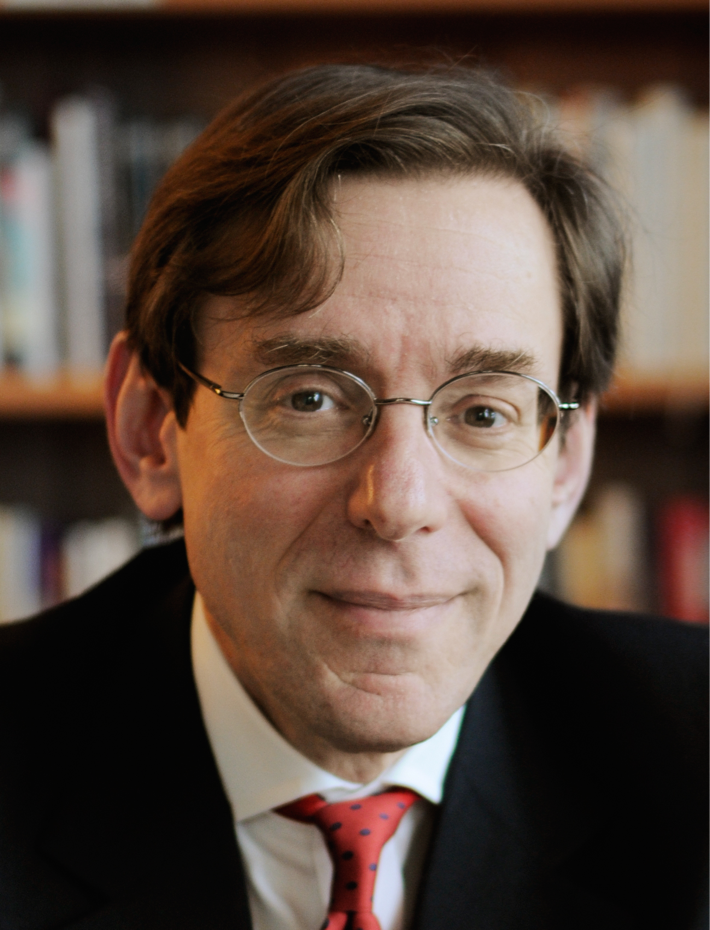
Steven Simon: Prominent Obama-era apologist for Hezbollah
Adding another layer of pseudo-intellectual sophistication to the future CIA chief’s assertions, Simon pushed an analogy between Hezbollah and the Irish Republican Army (IRA). Like the IRA, which became “convinced that the ballot box was more powerful than the gun,” Simon claimed, “Hezbollah’s leaders might see a move toward demilitarisation as a new avenue for increasing the group’s appeal and bolstering its credibility as a party.”
This statement, and the comparison which it posits, is even more embarrassing today than when it was published.
Even as Simon conceded that, unlike the IRA, Hezbollah had a state backer, he nevertheless contended, relying on a 2009 Rand Corp. study, “that Hezbollah was distancing itself from Iranian patronage in order to increase its domestic legitimacy among parties that have viewed it as Tehran’s lackey.” You hardly have to sit on the nation’s top security agencies to know that this statement is precisely the opposite of the truth: Hezbollah is not merely a recipient of Iranian support; it is part of the Iranian command structure.
That fact alone nullifies the premise of Simon’s comparison. Still, he saw the similarities between the IRA and Hezbollah as “striking.” How, you might ask? Why, both organisations had “political and military wings,” naturally. Even when everyone knew that the IRA and its so-called “political wing”, Sinn Fein, were distinct only in name, Sinn Fein’s leaders at least put on the public act of separating themselves from the IRA and its operations. Hezbollah, on the other hand, emphatically underscores the absolute oneness of the group and its command. None of these easily observable facts, however, made any difference to Simon.
In the decade since the essay’s publication, the growth in Hezbollah’s military activity makes a mockery of Simon’s claim about its supposed desire to “demilitarise” and “shift more decisively to the political realm.” In fact, Hezbollah has both increased its military role as well as its political dominance, maybe because it never saw the two as mutually exclusive options.
All this was of no concern to Simon, who was simply pushing a policy of establishing a channel to Hezbollah. “The Obama administration,” he wrote, “should suspend its ban on official contact with Hezbollah.”
As with the academics and journalists who invented distinct categories in Hezbollah in the service of their preferred policy, what Brennan and Simon were engaged in was not an intellectual exercise. Rather, what they did was simply to put a veneer of nuanced worldliness on a policy decision that was already made by their boss: entente and realignment with Iran.
One suspects a similar logic applies to France. Behind Macron’s soaring, moralising rhetoric, there are perhaps less lofty calculations. For one thing, Macron knows French troops stationed in Lebanon as part of UNIFIL could become targets once more. But beyond threats, France is invested in Lebanon, politically and economically. And the French understand that Hezbollah runs the show in Beirut. Fairy tales about different wings, therefore, are necessary for business.
But while the old line about Hezbollah having some sort of magical distinction between its political and military wings no longer cuts it for some, the story the bien-pensants in policy circles everywhere in the West tell themselves today is another convenient fiction – that you can separate the group that dominates the Lebanese Government and all its institutions from the polity it dominates.
In other words, today’s smart set believes that you can somehow designate the former as a terrorist organisation while continuing to support and do business with the latter without interruption.
As much as the US and the Europeans want to pretend that Hezbollah and the “Lebanese state” are not the same thing, reality is the unfailing wet blanket. Such is the total distinction between the Lebanese state and Hezbollah that the Lebanese Embassy in London intervened on Hezbollah’s behalf with a letter to British members of parliament explaining how Hezbollah “enjoys broad popular support, and is represented in parliament, the government and the municipalities, and is difficult to set apart from the general Lebanese public.”
The Lebanese know they can get away with this. Any nation can now, for example, warn the Lebanese about Hezbollah’s “influence” in the government, or its control over this or that ministry, and still turn around the next day and announce its enduring commitment to supporting this very same government and to pour aid into its institutions. This, sadly, is precisely what the US Government is doing.
To be sure, the British decision to proscribe Hezbollah, and the Trump Administration’s ongoing efforts to target the group’s criminal enterprise and sources of revenue, are laudable. They are, however, undermined by the stubborn attachment to a policy of make-believe.
The US continues to urge European countries, like France and Germany, to follow Britain’s example and drop the myth of distinct wings in Hezbollah, to no avail, as the myth serves their policies toward Lebanon and Iran. But Washington is wedded to a fable of its own: that by strengthening the “institutions” of a Hezbollah-controlled state, we somehow (and nobody actually bothers to explain how or when) defeat Hezbollah’s “narrative.” As commander of the US Central Command, Gen. Joseph Votel, explained to a US Senate committee last month, the US policy to strengthen the Lebanese Armed Forces (LAF) – which maintain a synergetic relationship with Hezbollah – helps undercut “Hezbollah’s claim that its armed militia is necessary to protect Lebanon.”
The British, too, have invested heavily in the LAF, and “narrative,” and will continue to do so even as they proscribed Hezbollah, which not only operates jointly with the LAF, but which also controls the government to which the LAF answers.
The two fictions, which distinguish between Hezbollah’s wings and between Lebanon and Hezbollah, are not identical, but their function is the same. They are simply a cover for a predetermined policy decision, and a convenient way to bypass a reality we simply don’t want to acknowledge or deal with – namely, that Lebanon is run by a terrorist group tied to Iran. And that by supporting Lebanon’s Hezbollah-dominated “state institutions,” we are supporting Hezbollah’s state.


